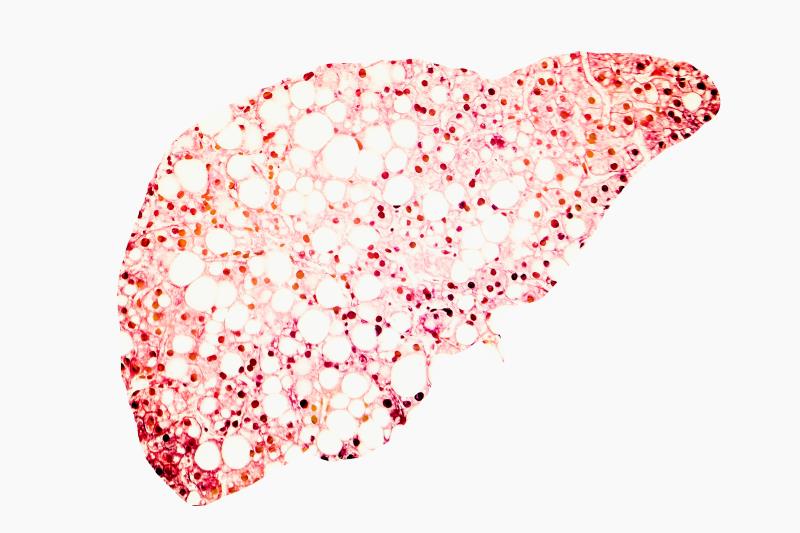Bariatric surgery may reduce NAFLD risk





By reducing hepatic enzyme levels and improving markers of hepatic steatosis or fibrosis, bariatric surgery may help reduce the risk of non-alcoholic fatty liver disease (NAFLD), according to a study from Portugal presented at ENDO 2020.
The researchers of this observational, retrospective study examined data of 1,955 patients (mean age 43.1 years, 85.8 percent female) with morbid obesity who underwent bariatric surgery (either laparoscopic adjustable gastric banding [LAGB], sleeve gastrectomy, or gastric bypass) between January 2010 and July 2018.
One-year post-surgery, patients who underwent bariatric surgery had significant reductions in transaminase levels, namely alanine aminotransferase (ALT; 29.5 vs 22.2 U/L) and aspartate aminotransferase (AST; 24.8 vs 22.4 U/L; p<0.01 for both). [ENDO 2020, abstract MON-592]
Patients who underwent bariatric surgery also had a significant reduction in gamma-glutamyltransferase levels 1-year post-surgery (36.9 vs 21.4 U/L; p<0.01). One year after surgery, patients who underwent bariatric surgery had increased alkaline phosphatase (77.8 vs 80.8 U/L) and total bilirubin levels (0.56 vs 0.68 mg/dL; p<0.01 for both).
Patients who underwent bariatric surgery also experienced significant reductions in Fatty Liver Index (FLI), a marker of hepatic steatosis, and BARD score, a predictor of hepatic fibrosis (p<0.01 for both) one year following surgery.
“NAFLD is strongly associated with obesity, and the prevalence of both diseases is notably increasing,” said lead researcher Dr Marta Borges-Canha from the Centro Hospitalar Universitário de São João in Porto, Portugal.
In fact, research has reported the occurrence of fatty liver in about 40–80 percent of patients with type 2 diabetes and 30–90 percent of those with obesity. [Nat Rev Dis Primers 2015;1:15080]
“There is a concerning lack of effective treatment options for patients with NAFLD,” added Borges-Canha. There are currently no medications approved to treat NAFLD, with current treatment strategies focusing on weight loss in order to reduce fat, inflammation, fibrosis, or scarring in the liver, she said.
“The lack of effective treatment options for NAFLD is leading to a great consideration towards the identification of new approaches,” noted Borges-Canha and co-researchers. “Bariatric surgery is associated with a reduction of the hepatic enzymes and an improvement of FLI and BARD [and] may represent an effective therapeutic approach to NAFLD,” they said.
When the researchers compared the different types of bariatric surgery, the decreases in hepatic enzymes as well as FLI and BARD scores appeared greater with sleeve gastrectomy compared with LAGB. Patients who underwent sleeve gastrectomy also had greater reductions in AST, ALT, and alkaline phosphatase levels compared with those who underwent gastric bypass, though the reductions in FLI and BARD score were lower. “[Nonetheless,] we believe that gastric bypass may be the best surgical option in these patients,” said Borges-Canha.